I’ve always loved cars and watched how technology has changed them. When I was younger, every new car model was exciting. It brought better performance, safety, and fuel efficiency. Now, we’re seeing a big change thanks to artificial intelligence (AI).
AI is changing cars in amazing ways. It’s making cars smarter, from how they’re made to how they drive. It’s an exciting time to be in the car industry, as we see the start of a new era of smart cars.
In this article, we’ll look at how AI is changing cars. We’ll see how it makes cars safer and more personal. We’ll also talk about the new tech that’s making cars smarter and more connected to our lives.
Key Takeaways
- Artificial Intelligence is transforming the automotive industry, from manufacturing to autonomous driving
- AI-powered solutions are making vehicles safer, more efficient, and personalized
- Generative AI is speeding up the design and making of car parts
- The mix of AI with new tech like 5G is set to change how we drive
- Fixing issues with data, infrastructure, and rules is key for AI in cars to become common
Revolutionizing the Automotive Industry with Artificial Intelligence
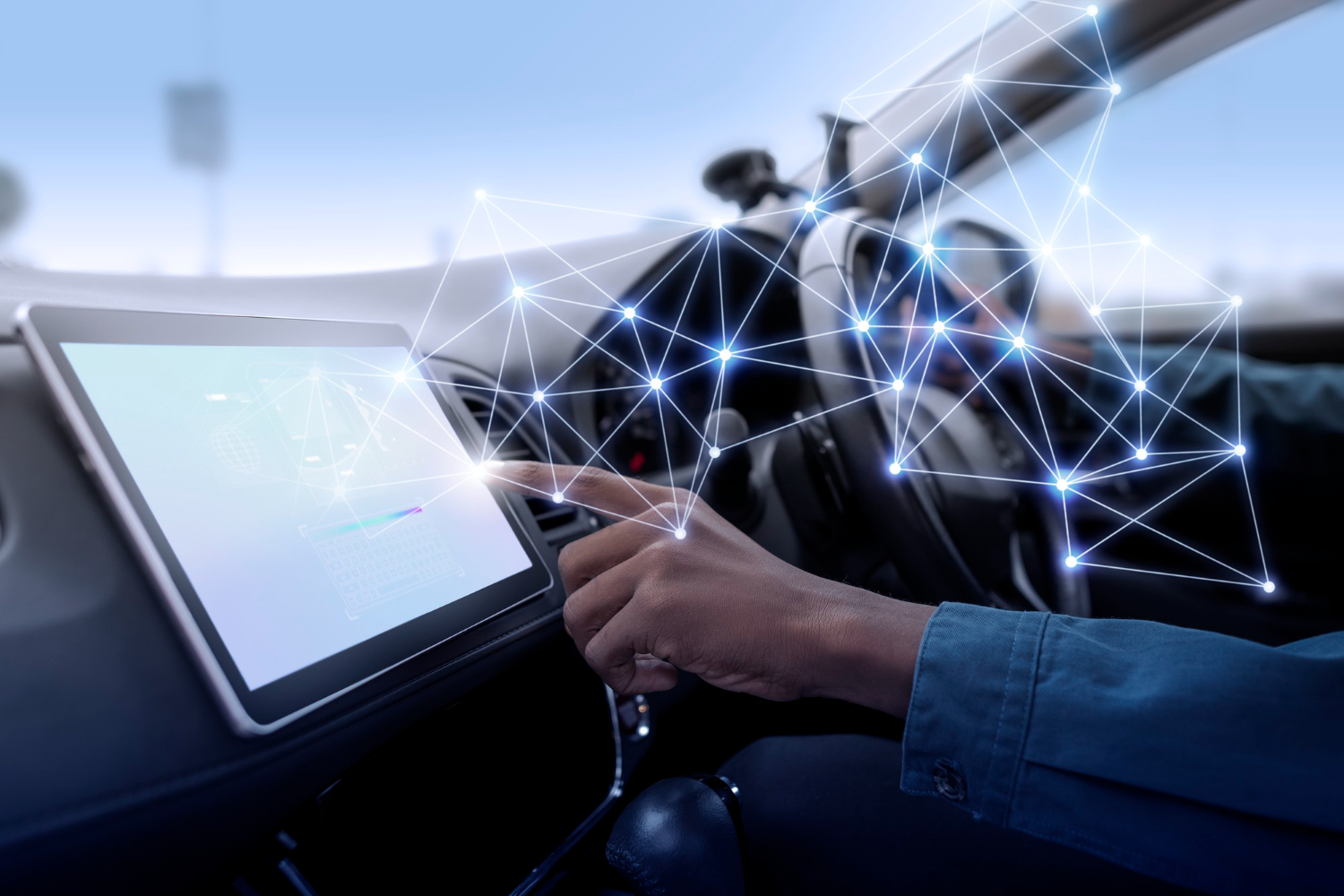
The automotive industry is changing fast, thanks to artificial intelligence (AI). AI is making big changes in manufacturing and in making cars drive themselves. It’s bringing new chances for innovation and making things more efficient.
From Manufacturing to Autonomous Driving
In car making, AI is helping with robots and computer vision. This makes assembly lines more automated, precise, and productive. Big car makers like Mercedes-Benz, Toyota, and Volkswagen are using AI to improve their work.
AI is also key in making cars drive themselves. It uses smart algorithms and sensors to help cars understand and move around. This could lead to a future where cars drive themselves a lot.
AI-Powered Solutions Transforming the Automotive Landscape
AI is doing more than just making cars and helping them drive. It’s also making cars last longer by finding problems early. And it’s making driving safer and more efficient with advanced systems.
AI is also changing how we enjoy our car rides. It’s making cars understand voice commands and play music just for us. This makes driving safer, smarter, and more fun for everyone.
From AI in automotive manufacturing to AI in autonomous driving, the car world is getting a big boost from AI automotive software and AI-powered automotive innovations. It’s changing how we make, use, and enjoy our cars.
“The future of the automotive industry is inextricably linked to the advancements in artificial intelligence. AI is not just a tool, but a catalyst for transformative change that will redefine the way we think about transportation.”
Exploring the Role of AI in Autonomous Vehicles
Artificial intelligence (AI) is key to making cars drive on their own. It’s important to know the levels of car autonomy. These range from basic systems (Level 1) to fully self-driving cars (Level 5).
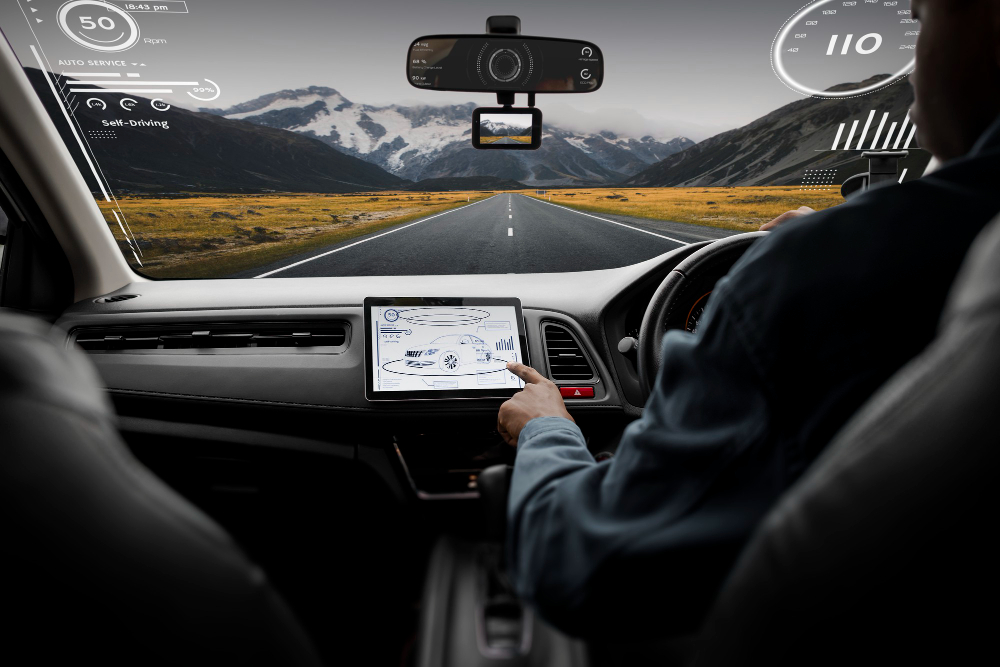
Understanding the Levels of Autonomy
The Society of Automotive Engineers (SAE) defines these levels. Level 1 systems help with tasks like cruise control. Level 5 cars can handle complex situations without human help.
AI Algorithms Powering Self-Driving Cars
AI algorithms like regression and decision matrix are vital for self-driving cars. They use machine learning and sensor fusion to detect objects and navigate. This makes driving safer and more efficient.
Convolutional neural networks (CNNs) help analyze visual data from cameras. Reinforcement Learning lets cars learn from their experiences. This improves their ability to make decisions.
“The integration of advanced technology like AI has positioned Waymo as a front-runner in driverless car technology.”
AI’s role in cars is growing. It’s making driving safer and more efficient. The future of transportation is changing thanks to AI.
Enhancing Safety with artificial intelligence in cars
The car industry is changing fast, thanks to AI in safety systems. AI helps make cars safer by using sensors and algorithms. These tools spot dangers early, helping drivers avoid accidents.
Advanced Driver Assistance Systems (ADAS)
ADAS, powered by AI, makes driving safer for everyone. It includes features like lane warning and emergency braking. These use AI to act fast when danger is near.
Studies say AI could cut traffic deaths by up to 90%. This shows how much AI helps keep us safe on the road.
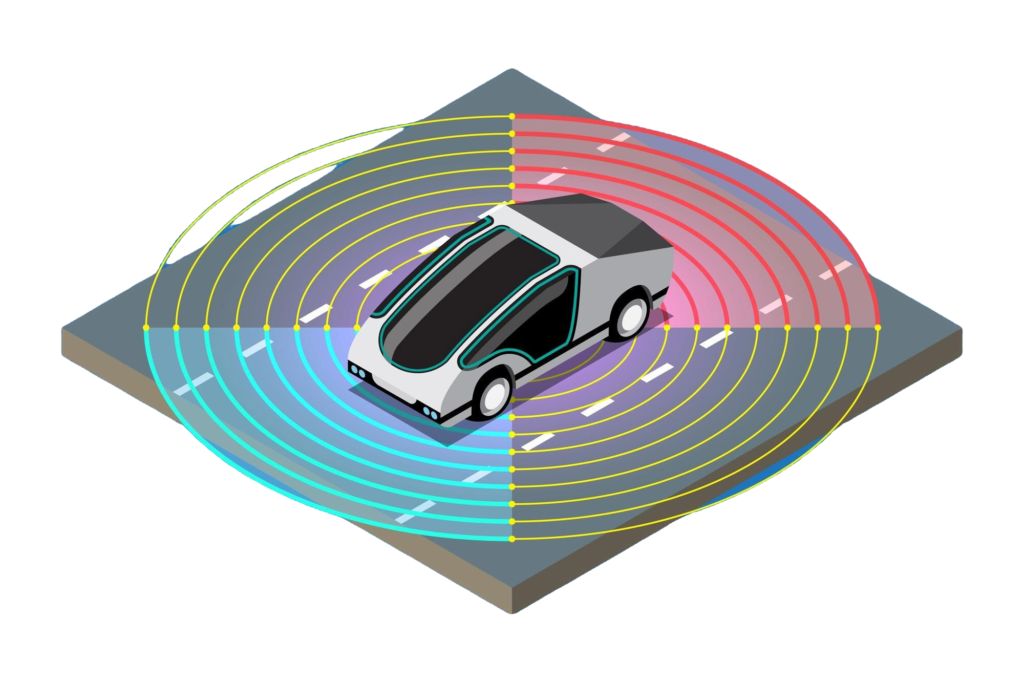
Predictive Maintenance and Vehicle Diagnostics
AI is also changing how we maintain cars. It watches how cars perform and finds problems early. This means cars can be fixed before they break down.
This makes cars more reliable and safe. It also helps them use less fuel, making driving better for the planet.
The market for self-driving cars is expected to hit $60 billion by 2024. AI is making cars safer, more reliable, and efficient. It’s changing how we travel.
“The integration of AI systems provides 360-degree awareness, making the vehicle react to unexpected situations effectively.”
AI-Driven Automotive Manufacturing and Supply Chain
The automotive industry is changing fast, thanks to artificial intelligence (AI). AI is making a big impact in manufacturing and supply chain management. It’s changing how cars are made and delivered to customers.
In car production, AI-powered robots and computer vision are making things more precise and efficient. AI can analyze data in real-time to improve the production process. This leads to less waste and better quality.
AI is also changing the supply chain. It helps manage inventory, logistics, and distribution better. This makes the whole process more efficient and saves costs.
AI uses IoT sensors, machine learning, and data analytics to improve the supply chain. It can predict demand, find the best routes for transport, and spot problems early. This leads to better efficiency, cost savings, and happier customers.
The effect of AI on the automotive industry is huge. According to Precedence Research, the global automotive AI market is projected to grow from $3.22 billion in 2023 to reach $35.71 billion by 2033. This shows how much AI can change car design, production, and delivery.
AI has many uses in car production and supply chain management. It helps with predictive maintenance and generative design. As the industry keeps using AI, we’ll see more improvements in the future.
Personalizing the In-Car Experience with AI
AI is changing the car world in big ways. It’s not just making cars better; it’s making driving more fun for everyone. AI-powered voice assistants in cars and natural language processing for automotive bring new levels of personalization and ease.
Voice Recognition and Natural Language Processing
Voice assistants powered by AI can understand many different ways of speaking. They can do lots of things, like play music and give directions. All you need to do is talk to them.
AI-Powered Infotainment and Recommendations
AI also makes car entertainment better. AI-based infotainment systems learn what you like and suggest things based on that. They make sure your drive is just right for you, thanks to AI.
“AI is revolutionizing the in-car experience, making it more intuitive, personalized, and connected than ever before.”
AI is making cars smarter and more fun to use. It’s changing how we talk to our cars and making driving better for everyone.
The Future of AI in the Automotive Industry
The automotive world is on the verge of a big change. This change comes from new technologies like 5G and AI. Soon, 5G and connected cars will change how we use and enjoy our vehicles.
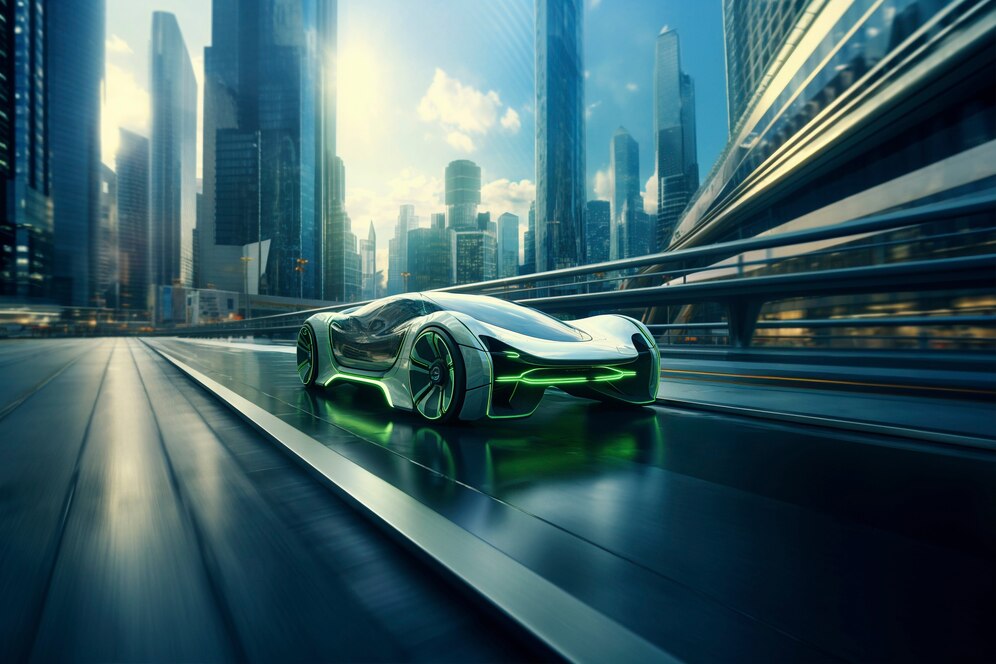
5G and Connected Cars
5G technology is about to open up new possibilities for cars and car systems. It will make data transfer fast, reduce delays, and improve connections. This means cars will talk better to each other, roads, and the cloud.
This will lead to better self-driving cars, up-to-date traffic info, and a smoother ride inside the car.
Sustainable and Eco-Friendly Innovations
AI is key in making cars better for the planet. It helps make cars use less energy and produce fewer emissions. AI-powered eco-friendly cars are on the rise, thanks to AI.
AI helps manage batteries, predict when cars need maintenance, and make driving more efficient. This makes cars greener and more efficient.
The future of AI in cars looks bright. With 5G and connected cars, and AI for green cars, the industry will get smarter and safer. The future of AI in automotive will change how we drive and affect the environment.
“The integration of 5G and AI is set to transform the automotive industry, paving the way for a future where cars are not only autonomous but also environmentally conscious.”
Challenges and Considerations for AI Adoption in Automotive
Artificial intelligence (AI) in cars has many benefits. Yet, it also brings challenges and considerations. The industry must navigate regulatory frameworks, data privacy, and ethical concerns. This is key for the responsible growth of AI in cars.
One big challenge is the changing rules for self-driving cars. Policymakers and car companies need to agree on guidelines. They must address issues like who is liable when something goes wrong. It’s important to make sure these cars are safe and trusted by everyone.
Connected cars also raise big questions about data privacy and security. It’s vital to protect the personal information of drivers and passengers. If these concerns aren’t met, it could harm trust in AI cars.
Lastly, the ethics of AI in cars need careful thought. Questions about safety, moral dilemmas, and who’s accountable for AI actions are important. Working with experts, policymakers, and the public is essential. This will help ensure AI cars are used responsibly.

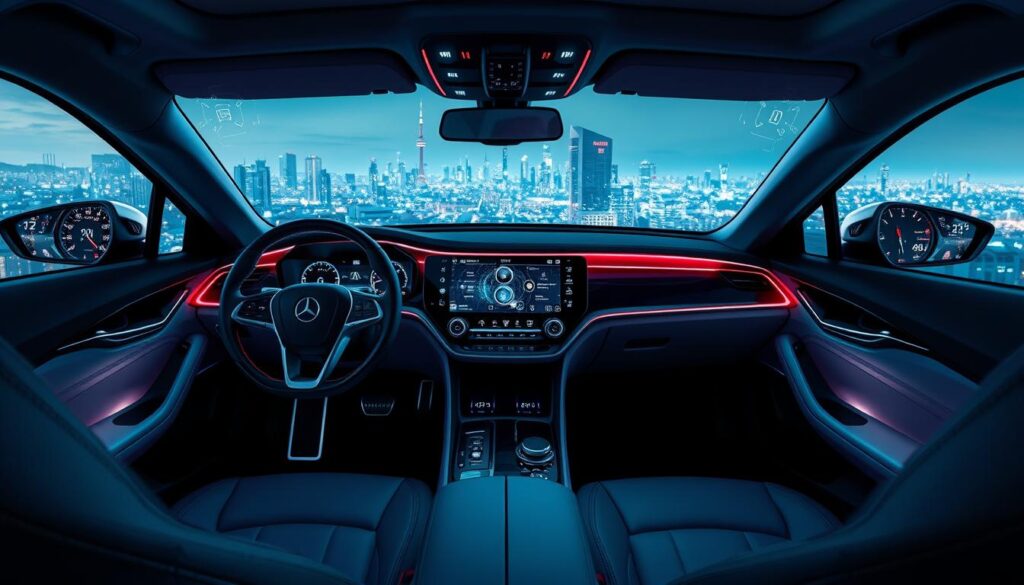

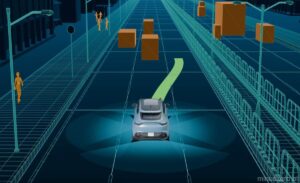

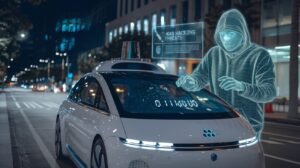
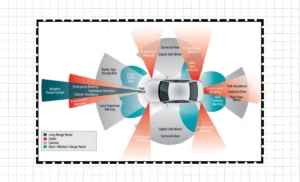
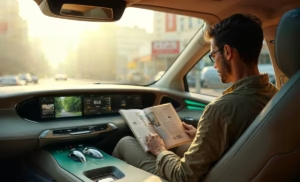

Excellent overview of conversational AI in dealership service! One thing I’m curious about is how these platforms handle escalations for more complex issues. At Autoservice A.I, we’ve seen a growing demand for seamless transitions from AI to live agents.
Thanks for shedding light on this exciting technology.
Thank you for your comment!
You’re absolutely right, seamless transitions from AI to live agents are crucial for handling complex issues. It’s great to hear Autoservice A.I is focusing on improving this aspect. This technology is indeed making significant strides in enhancing dealership service.